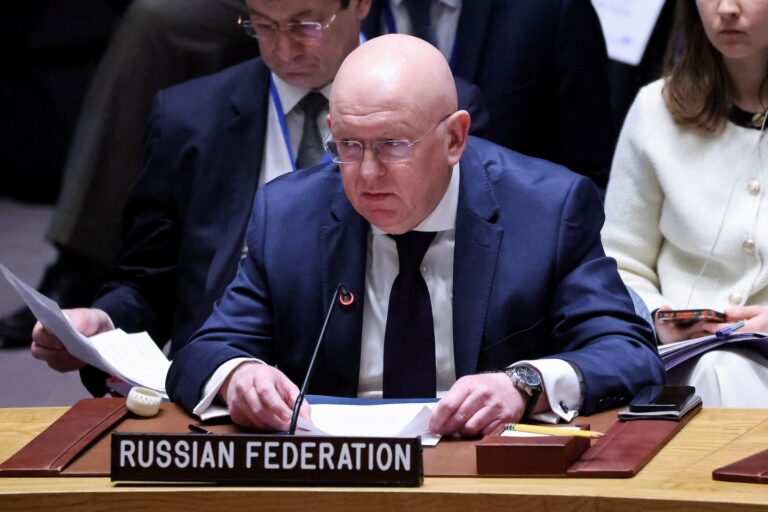
[ad_1]
The veto underscored the growing rift between Russia and the United States, plus its Western allies, since Moscow’s invasion of Ukraine. U.S. officials also allege that North Korea has been transferring weapons to Russia to use in Moscow’s war effort. Russia and North Korea have denied those allegations.
“With this veto, Russia has transitioned from an international spoiler to an outlaw state, when it comes to nuclear nonproliferation and ballistic missile enforcement norms,” Hugh Griffiths, former coordinator of the panel, told The Washington Post. “It’s told the world that U.N.-prohibited North Korean nuclear weapons programs are now, somehow, okay.”
Since its establishment in 2009, the panel of independent experts has monitored the enforcement of U.N. sanctions imposed on North Korea since 2006 in response to the country’s nuclear and missile activities. The panel reports twice a year to the U.N. Security Council about the effectiveness of those sanctions and details developments in North Korea’s illicit activities in cyber and weapons proliferation, oil smuggling and more.
The panel’s mandate will expire on April 30.
Although the panel does not have enforcement authority, it served as an important investigatory body and a clearing house for information on activities by North Korea that run afoul of international prohibitions. The vote does not affect the existing U.N. sanctions on North Korea, which remain in effect.
The panel, in its latest report, accused Pyongyang of engaging in cyberattacks that valued approximately $3 billion to generate funds for its weapons programs.
“This is almost comparable to destroying a CCTV to avoid being caught red-handed,” said Hwang Joon-kook, the South Korean ambassador to the United Nations, during the U.N. meeting.
“Today, we witnessed yet another setback in the authority of this august body, as well as in the international nonproliferation regime. A permanent member of the Security Council and depository of the Non-Proliferation Treaty completely abandoned its responsibility,” Hwang said.
In recent years, the U.N. Security Council has been divided in its enforcement of sanctions on North Korea. China, North Korea’s biggest economic lifeline, and Russia have questioned the effectiveness of the council’s prohibitions aimed at reining in Pyongyang’s nuclear ambitions. In recent weeks, many North Korea observers had anticipated that Russia may finally pull the plug on the panel’s mandate.
“Moscow has undermined the prospect of a peaceful, diplomatic resolution of one of the world’s most dangerous nuclear proliferation issues,” Robert Wood, the deputy U.S. ambassador to the United Nations, said during the meeting.
China abstained from the vote. The 13 other Security Council countries voted in favor of extending the panel.
Russia’s U.N. ambassador, Vasily Nebenzya, criticized the panel’s work, saying it is “increasingly being reduced to playing into the hands of Western approaches, reprinting biased information and analyzing newspaper headlines and poor quality photos.”
Oh Joon, former South Korean ambassador to the United Nations, said in an interview that even though the panel is being dissolved, each member state will still be able to report violations to the Security Council because the U.N. sanctions remain in effect.
“Though the panel of experts is not being renewed, the sanctions regime on North Korea is still very present and will continue to monitor the violations in different ways,” Oh said.
Griffiths noted that one of the important functions of the panel was providing an independent assessment of the companies and individuals that were violating financial sanctions on North Korea or supporting its proliferation networks. That information was used by banks and insurance companies to freeze and close assets of those people and companies verified to be helping North Korea violate international sanctions, he said.
“The impact is devastating,” Griffiths said. “Without the panel’s biannual reporting, dozens of global banks and insurance companies now lack the gold standard reports they once used to deny proliferation networks access to the global financial system.”
[ad_2]